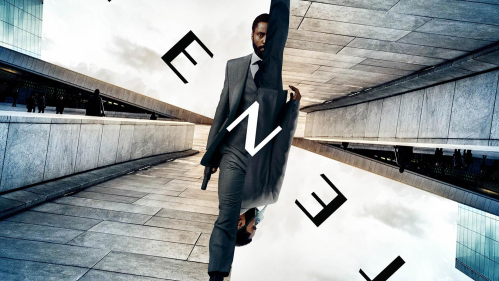Rutgers Philosopher Discusses Tenet and Direction of Time

The reopening of movie theaters brings Christopher Nolan’s long-awaited Tenet, a sci-fi film that uses “time inversion” – reversals of time in which the future can warn the past, bullets fly back into a gun, and action scenes mirror themselves like palindromes – as a plot device.
Rutgers University-New Brunswick philosophy Professor Jill North, an expert on the philosophy of physics, metaphysics and other aspects of science, has studied the direction of time and whether it can be reversed. She answers questions about time’s arrow, Tenet and other sci-fi parables that challenge what we understand about causality and entropy.
Q: Why do we perceive the past as behind us and the future as ahead of us?
The temporal directions of past and future seem so very different because our experience is full of processes that occur in one direction only. Coffee cools and ice melts; waves ripple outwards from a pebble’s drop in a pond; eggs splatter when dropped. Seeing one of these processes in reverse – waves converging to a spot from where a pebble is suddenly ejected, for instance – would shock us. This gives us the feeling that there is a direction of time. Importantly, these are processes in which entropy increases. States of higher entropy are overwhelmingly more probable than lower entropy states so, at any time, entropy is overwhelmingly likely to increase. And since the universe started in an extremely low entropy state, entropy has been overwhelmingly likely to continue increasing since the beginning.
Q: Could something change the direction of time, as shown in Tenet?
First, let’s make a distinction: Discussing why we experience time as having a direction is not the same as discussing whether time itself has a direction that can be reversed. Let’s talk about the possibility of reversing our experience of time’s direction. According to the laws of physics, it would not be impossible for an entropy-decreasing process to occur – for the waves to converge and the pebble to fly out of the pond – but it would be overwhelmingly unlikely. It would take an extraordinarily improbable arrangement of things, a reversal of the motions of all the particles involved. This is not contrary to the laws of physics, but is something we should not expect to happen in a million years. Perhaps in Tenet there is a sci-fi technology that allows certain people to make this happen regularly.
Q: What is your favorite illustration, from philosophy or science fiction, that challenges us to think about how time works?
Let’s talk about time travel. Certain models of our best physical theories, like general relativity, seem to allow time travel, but questions remain as to whether it is truly possible. These are illustrated by the famous “grandfather paradox.” If you could travel back in time, then it should be possible to kill your grandfather, but then you would never have existed to kill him in the first place. To prevent this contradiction, something would have to get in the way and prevent you from carrying out your murderous intention – you would slip on banana peels and otherwise be foiled at every turn. But even if time travel isn’t outright inconsistent, is it at all likely to occur in our world? We don’t see people slipping on banana peels and getting foiled at every turn; nor do we meet people claiming to be time travelers – or if we did, we’d probably think them delusional. This is illustrated beautifully in Terry Gilliam’s film Twelve Monkeys (as the philosopher Heather Dyke, for example, has discussed). From one way of reading the movie, time travel does occur, in a consistent way. But in another reading, the alleged time traveler is simply delusional.


